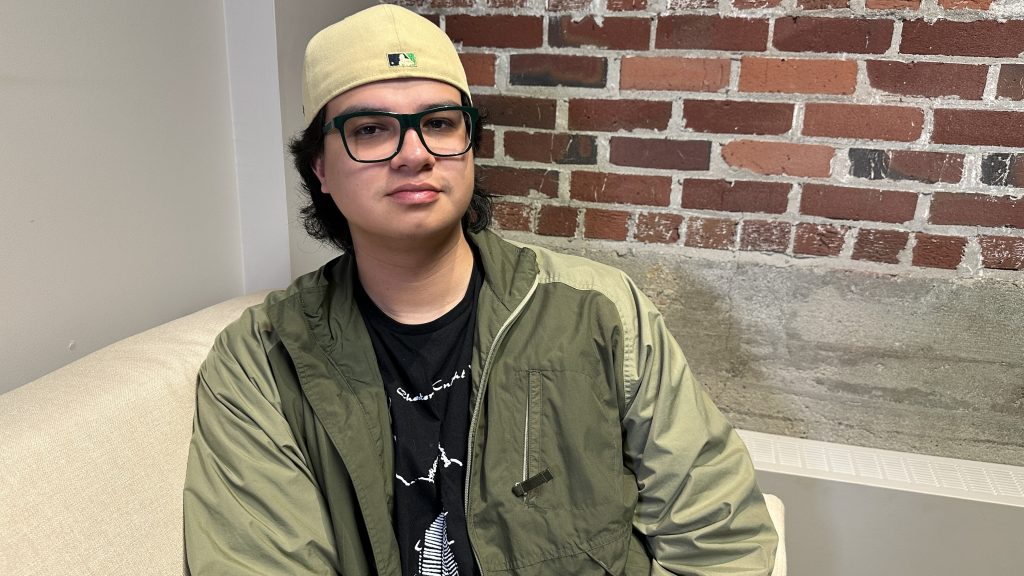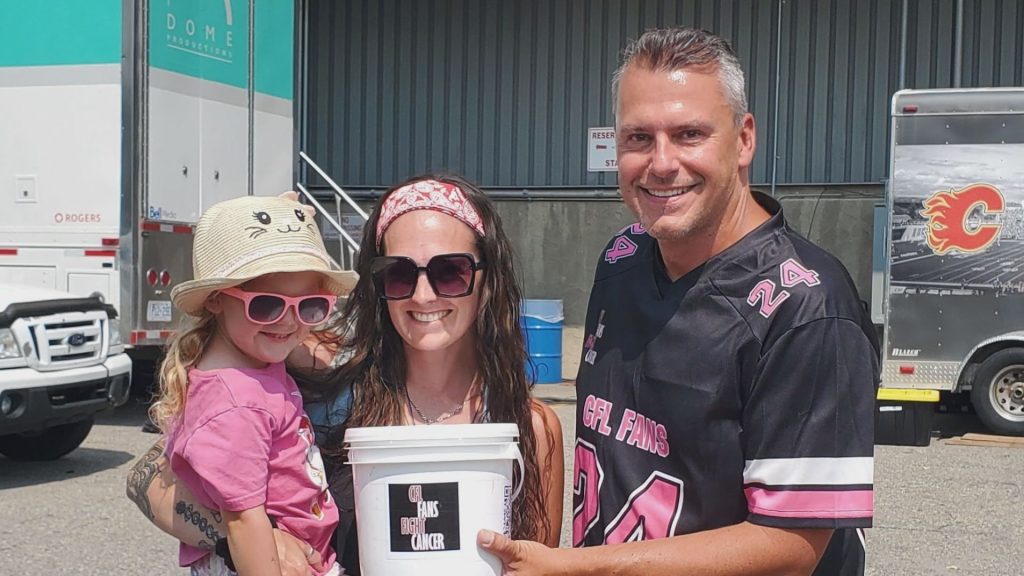Supervision needed to prevent youth in care from turning violent? A former CFS child says: No
Posted March 15, 2024 4:17 pm.
Last Updated March 15, 2024 7:18 pm.
How do young people go from playing with toys to wielding machetes and ending up behind bars? That’s what’s happening to some kids in care, in Winnipeg.
On Thursday, the city’s police chief said violence is happening because of a lack of supervision. A young man, who spent most of his life in care, offers a different perspective.
“The system doesn’t have any capacity to build on those core concepts of what a family is and what it takes to raise a child,” explained Joshua Nepinak.
“This youth is gonna seek this connection and, even if they’re roaming the streets … that connection will be met in the easiest way possible, whether it’s in a negative way or a positive way.”
Adding, “We have to look at the whole picture which is, how are these kids connecting?”
Winnipeg Police Chief Danny Smyth spoke about several violent robberies, which happened last week, that were carried out by youth in care. One is as young as 13-years-old.
“We’re seeing over and over again that often, kids who are finding themselves in the circumstances of group homes and foster homes, their needs aren’t being met and they’re taking off,” said Smyth.
Nepinak, a 23-year-old Anishinaabe man, was placed into CFS care at the age of 15. Before that, he and his sister were living with their paternal grandparents in a home that he described as abusive. He says social workers came to the household, but they listened to the adults and not the children.
“The self-advocacy … that I and my sister tried to have was always undermined because we were youth in care, and nobody’s going to listen to a child in care because what do they know?” he asked.
Nepinak ran away from his paternal grandparents at the age of 15, then he was placed in the care of Child and Family Services (CFS). But at an older age, he says he had trouble getting placed, so he started running away to the only family he had positive connections with his maternal grandparents.
“I continued to run to my grandparent’s place and I guess, finally the agency buckled and recognized the place was a place of safety and technically, my (maternal) grandparents became my foster parents,” said Nepinak.
“It became a lot more stable.”

Looking back at his experience, he says adults in his life failed to meet him where he was at in his life.
“Where I was at was, somebody who was abused. The sense of family that I did have was abuse and now there’s this system that’s supposed to be benevolent and give you better than what you had, it’s trying to do that … And by going against the agency, I was labelled a troublemaker,” he explained.
Now a support worker and action therapist himself, Nepinak says he was saved because of the positive, stable connections he was able to find from his extended family.
“I owe it to a lot of people. It wasn’t just myself, it wasn’t just one person. It was many people who did their part,” he said.
“My uncle was sort of my first action therapist. We’d go run errands. We’d talk. I’d open up, tell him about, this is what I went through and you know, it was just simple validation that sort of kick-started that avenue to heal.”
He believes connection is what many children and youth in the system are missing because they can’t form stable relationships with the adults around them.
“I was always told the family is built around either the dinner table, the back yard,” said Nepinak.
“It’s sort of like, wake up, eat, go to school, come back. And it’s a new staff when you come back from school. It’s a new staff when you wake up. There’s a shift change by the time you go to bed. And it’s like, it brings out an emotional response because I’ve witnessed it from the days I’ve been in those homes.”
Nepinak says there are many actions which could be taken to better support foster children and children in group homes, including supports that go beyond when people age out of care as there are lasting effects from the traumas of childhood and CFS.

But immediately, Nepinak says steps need to be taken to reduce the revolving door of different people in the lives of youth in care so they can begin to form lasting and positive relationships.
“The particulars of this case where these kids went out and did violent crimes, as much as the system can be blamed, we can’t really cut slack for the incident that happened. There needs to be an intensive review on, what are these kids connecting with? Who are their supports within the system? How have those supports been interacting with these children?” he asked.
“What can we do today, tomorrow, to have some restorative justice so that these kids can have positive interactions, and not being met with negative interaction with the city. The police chief striking down on these kids saying they need this and that, when at the end of the day, maybe they need a positive push. A friend.”
Manitoba’s Minister for Families, Nahanni Fontaine, said in an email statement to CityNews that violent crime in communities is always concerning, particularly when they involve children.
“Youth come into conflict with the law because of trauma and lack of resources, supports, and encouragement they so desperately deserve and need to thrive. This speaks to larger societal issues and a lack of action on addressing the root causes of crime,” she wrote.
“We know the path forward means taking a whole-of-government approach to keep children out of the justice system.”








